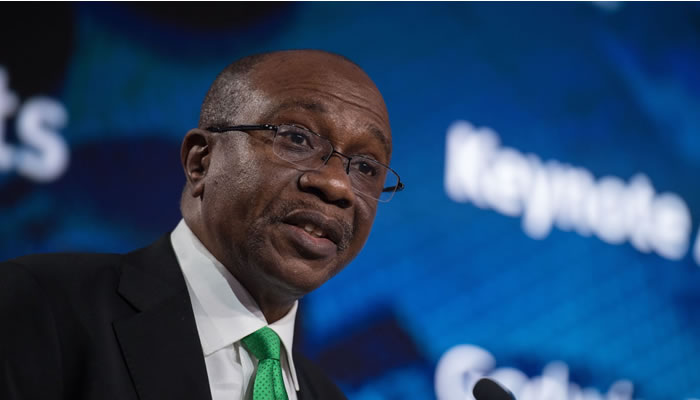
GODWIN Emefiele fell from the high pedestal of Governor of the Central Bank of Nigeria to detainee at the weekend as President Bola Tinubu moved to sanitise the odorous financial system. The Presidency explained in the statement suspending Emefiele “with immediate effect” on Friday that this was “sequel to the ongoing investigation of his office and the planned reforms in the financial sector of the economy.” This is the right call; the actions of the ousted banker and the CBN should be thoroughly investigated, but more importantly, it should presage the radical overhaul of the financial system and its regulation.
Emefiele’s eviction was long overdue. A holdover from the Goodluck Jonathan administration that had controversially ousted Lamido Sanusi in 2014, the Muhammadu Buhari government not only retained him, but also gave him free rein as he mismanaged and enmeshed the CBN in controversies.
Tinubu had promised to revisit Emefiele’s riotous naira re-issuance policy, merge the multiple foreign exchange rates contributing to crippling the productive sectors, and tackle inflation.
Emefiele was bad news. On his watch, the CBN and the clueless Buhari administration wielded a wrecking ball on fiscal and monetary policies. Whereas in June 2014, inflation was 8.2 percent, it hit 22.22 per cent in April. Though the government blamed the COVID-19 pandemic and the Russia-Ukraine war fallouts, mismanagement was the main culprit. The World Bank said cumulative inflation rose to 55 per cent in the three years to 2022, significantly crashing real incomes and contracting the GDP.
Similarly, the benchmark interest rate rose from 12 percent in 2014 to 18.5 per cent by May 2023. Businesses are squeezed, denied credit and forex. Other countries manage rates better despite the global shocks. Since 2016, the benchmark rate in Japan has been -0.1 per cent; it is currently 8.25 per cent in South Africa, 11.00 per cent in Egypt, 4.5 per cent in the United Kingdom, 2.36 per cent in Germany, and 5.00-5.25 per cent in the United States.
As key indicators went south, monetary policies failed to moderate the spiral. GDP growth rate averaged 7.0 per cent 2007 to 2013. But Nigeria witnessed two recessions in 2016 and 2020 due to both external pressures and domestic incompetence. At N46.25 trillion currently, debt-to-GDP ratio, which was just 11 percent in 2014, had risen to 38 percent in 2022 records Statista, with significant help fromEmefiele. Compromising the CBN’s independence, he extended a staggering N22.7 trillion via the ‘Ways and Means’ channel, far above the limit allowed by law.
The naira depreciated dangerously. In June 2015, it exchanged for N197 to $1; it has fallen to N460 to $1 officially and between N740 and N760 at the parallel market.In the key functions of a central bank therefore–managing the national currency, money supply and inflation, and interest rates–Emefiele failed woefully.
His failures were enough to warrant his removal long ago, but he capped his error-strewn ways with recklessness. He introduced new N200, N500 and N1,000 banknotes in October 2022. Normally a routine monetary undertaking by central banks, Emefiele however plunged the economy into chaos by fixing January 2023 as the deadline to phase out the old notes. This upturned the financial system. He gave different reasons: pursuit of the cashless policy, fighting money laundering and kidnapping-for-ransom, and frustrating vote-buying. But the tight deadline, unavailability of the new and old notes and the sheer incompetence of the CBN to manage such an undertaking created havoc.
By December 2022, Nigerians could not access their money in the banks, leading to rowdy queues. Mobs attacked banks and their staff. The cashless objective was defeated by the prohibitive charges on online transactions and the weak digital infrastructure in the banking system.
As Nigerians suffered, Emefiele and Buhari brazenly disobeyed a Supreme Court order to recognise the old notes as legal tender.
The new banknotes are still scarce, and the economy is still reeling. Nigeria Breweries Plc reported a N10.71 billion loss in first quarter 2023; poultry farmers in the South-West say they recorded N50 billion in losses. Global consultancy, KPMG, estimated between N10 trillion and N15 trillion reduction in GDP.
Regulation and oversight over the deposit money banks have been particularly weak. The signature biometric verification number scheme is not concluded despite several deadlines. CBN regulators look the other way as banks torment customers with multiple charges, and lose their savings in online transactions. In 2022, six banks combined received 4.59 million complaints of failed transactions demanding N137.62 billion in refunds. Emefiele took his impunity to an unprecedented level when he plunged head-long into partisan politics and made a bid for the All Progressives Congress party’s presidential ticket while retaining his position as CBN governor! Under the indolent Buhari government, and the supine Ninth National Assembly, he got away with the impertinence.
Investigations into the CBN and of Emefiele should be extensive and thorough. There should be forensic audits and administrative inquests. The Economic and Financial Crimes Commission should investigate all the allegations in the public domain and uncover any misdeeds. The CBN is one of 60 agencies allegedly failing to remit due public funds.
Tinubu should ensure that the law is adhered to, and enforce inter-agency cooperation. Emefiele remains innocent until otherwise pronounced by the courts. The State Security Service that arrested him should restrict itself to investigation and prosecution only of the alleged infractions of national security. It should closely collaborate with and hand over the financial crime aspects to the EFCC.
Tinubu should undertake a thorough overhaul of the financial system and the CBN and achieve a synergy between fiscal and monetary policies. He should head-hunt a competent, visionary economist to replace Emefiele and drive the reforms, including a new regulatory regime that will fulfil the CBN’s mandates and tame the banks.
Other financial sector regulators should be similarly reformed, including the Financial Reporting Council, Financial Intelligence Unit, and Budget Office to revive the battered economy.
Nigeria needs a new competent, reforming CBN governor to clean up the messy financial sector. Tinubu should find one quickly.





